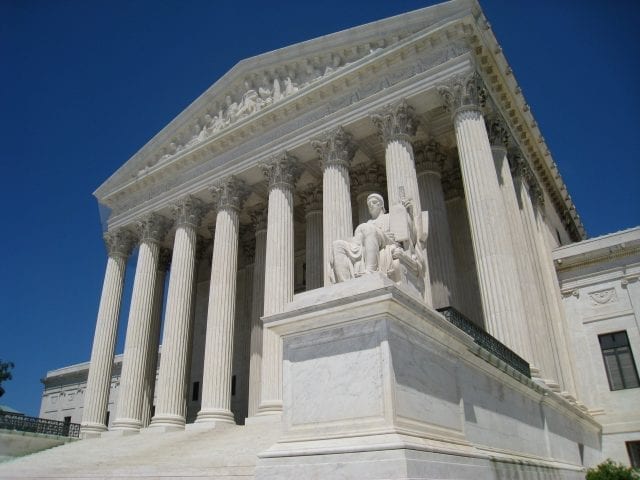The U.S. Supreme Court struck a blow against consumer protections on Monday, ruling that a national collections agency wasn’t in the wrong for pursuing an expired debt.
In a split 5-3 decision, the court sided with Midland Funding, which had repeatedly called an Alabama woman regarding $1,879 she’d owed for over a decade.
The woman, Aleida Johnson, argued that Midland had erred. Alabama, like other states, has limitations on the length of time for which a debt is valid. In Johnon’s case, the six year window for collections had passed, meaning she should have been protected from the coercive methods of debt collectors.
According to The Denver Post, Johnson didn’t end up having to pay her debt. However, the blow against consumers comes in the ruling.
Johnson and her attorneys had previously won a ruling in a federal appeals court, which allowed her to sue Midland for pursuing an account which had expired and was protected under the Fair Debt Collection Practices Act. The law prohibits companies like Midland from using ‘false, deceptive, or misleading representation’ to recover a debt through ‘unfair or unconscionable means.’
Justice Stephen Breyer wrote that the majority decision was justified because bankruptcy law doesn’t technically bar collections agencies from claiming that expired debts can’t still be paid off.
Breyer tried to assuage the concerns of consumers by pointing out that persons who had debts dismissed by bankruptcy wouldn’t have to pay past-due claims covered by their declaration.

However, the ruling seems to open the window for collections against to go after individuals which had declared bankruptcy, making calls and statements which might imply a client is still obligated to meet unfulfilled payments.
The Denver Post quotes Justice Sonia Sotomayor taking issue with Breyer and the majority’s ruling.
Sotomayor, in dissent, wrote the practices utilized by Midland Funding were “both unfair and unconscionable.”
“Professional debt collectors have built a business out of buying stale debt, filing claims in bankruptcy proceedings to collect it, and hoping that no one notices that the debt is too old to be enforced by the courts,” she wrote.
Justices Ruth Bader Ginsburg and Elena Kagan partook in the dissent.
The ruling was met with criticism from consumer advocates as well as bankruptcy lawyers.
“The result of [sic] decision appears to give creditors a free pass to file stale claims without fearing FDCPA liability,” said Andrew Muller, who is a partner at Stinson Leonard Street LLP. “The flip side is that trustees and debtors’ lawyers may be under increased pressure to more closely review claims to determine whether the claims are subject to a statute of limitations defense.”
Sotomayor’s dissent seemed to coincide with critics like Muller’s opinion. She also wrote that, “Debt collectors do not file these claims in good faith; they file them hoping and expecting that the bankruptcy system will fail.”
Newly-appointed Supreme Court Justice Neil Gorsuch did not partake in the 5-3 decision.
Sources
Supreme Court Backs Bids to Collect Outdated Debt in Bankruptcy
U.S. Supreme Courts rules against consumer in debt collection case


Join the conversation!